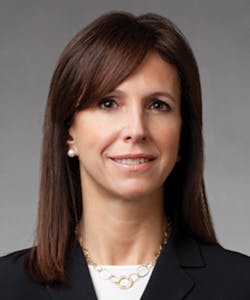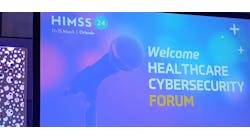We all know that the financial world typically embraces technology faster than healthcare. The era of Finance 2.0 began several years ago with the advent of blockchain backing up the crypto market. Since then, and with the further development of Cloud and Big Data, the use of blockchain is being examined as a means to revolutionize the way finances are being conducted across the world.
Healthcare has and will continue to look at and learn from other industries about the advantages and lessons learned from the use of blockchain. While blockchain may have originated in the finance world, its attributes have applicability in healthcare.
The use of blockchain in healthcare can reinvent the ecosystem in limitless ways to benefit the patient and advancements in treatments, outcomes, security and costs. Like the introduction of the cloud years ago, everyone is asking what is blockchain and its applicability to healthcare? Wikipedia defines blockchain, “as a decentralized and distributed digital ledger that is used to record transactions across many computers so that the record cannot be altered retroactively without the altercation of all subsequent blocks and the collusion of networks.” Thus, blockchain is a distributed tamperproof database that can be shared and maintained by multiple parties. Through the use of technology known as “cryptography,” data can be stored in “blocks” in a manner that only the intended users can open and read.
There is definitely a role for blockchain in the future of healthcare. The technology has implications that span a gamut, including patient medical records, conducting clinical trials, master patient index, supply chain, and revenue cycle management, to name a few. The potential to establish a longitudinal health record for patients that is also securely accessible to all of their clinicians could be supported by blockchain. This, of course, would significantly increase patient quality care.
Blockchain can also be applied in the context of precision medicine and to population health. The importance of population health is a given in healthcare and blockchain can provide the means to aggregate and identify where data are so that organizations can access patient data on a large scale. The advancement of interoperability and security are of paramount importance in healthcare and blockchain technology is being considered as a resource that can significantly increase the efficacy in these two important areas of healthcare.
Clearly, blockchain is a topic and opportunity with many facets and its applicability in healthcare is in an embryonic stage and being examined carefully by organization leadership. Healthcare organizations who are not cognizant of the importance of this digital strategy will find themselves left behind and have difficulty in adapting to what will likely be a relatively rapid transition. It will be important for healthcare providers, including complex health systems, academic medical centers and managed care to take heed of this new technology since it’s not a specific initiative.
IT vendors, consulting firms and pharma are also included in organizations who will be utilizing this digital technology to their advantage. Google and IBM have been developing blockchain tools for some time, and have more recently stepped up their interests in healthcare. Other healthcare giants will likely offer their own versions. There is no denying that blockchain is a new and important strategic resource for healthcare.
Blockchain also has caught the attention of the Office of the National Coordinator for Health IT. ONC hosted a blockchain challenge that solicited creative and transformative ways that it can be applied to healthcare. ONC received more than 70 proposals from a broad spectrum that included organizations, companies and individuals. The final winning 15 papers are posted at HealthIT.gov. ONC also has hosted workshops on blockchain and remains a valuable resource for those looking to educate themselves on its applicability to healthcare.
Who will lead blockchain innovation? Leadership for this new and important strategy is key to the success of its implementation and utilization. Senior level leadership will be tasked with defining the vision and setting the path for achieving benefits within the healthcare ecosystem. Highly strategic, blockchain-related roles either belong in the C-suite or reporting there. Is it part of the CIOs office, senior administration, quality/innovation or its own department? With its relatively complex technical nature, blockchain-related roles will absolutely need a highly skilled team of support. In addition to a specialized team, there also will be a budget to support the initiatives involved.
The background for these leaders will likely emanate from technology-minded professionals who can easily transition into this space. Those with degrees and advanced degrees in computer science, engineering, and IT architecture will meet the learning curve. Also, those coming from cybersecurity and finance could transition into blockchain leadership roles. Other potential backgrounds can include, senior software writer in medical field, CTO/master developer, digital designer and data scientist. Core competencies will include leadership, change management, agility, innovation and an entrepreneurial spirit. The expectation is for the compensation to be commensurate with the high demand for this role.
This is a critical time for healthcare organizations to realize the positive impact that blockchain will have on all aspects of healthcare delivery and to give careful consideration to this transformative model by bringing in the experts who can lead a successful transition. While blockchain is a fairly new concept, a recent Deloitte survey found that 35 percent of healthcare and life sciences respondents plan to deploy blockchain in production within the next calendar year.
Hillary Ross, J.D., is the managing director and leader of the Information Technology practice with the executive search firm Witt/Kieffer. Based in the firm’s Oak Brook, Illinois office, Hillary focuses on identifying CIOs, CISOs, CMIOs and other information technology leaders for hospitals, healthcare delivery systems, academic medical centers, colleges and universities, vendors and consulting firms across the country.



